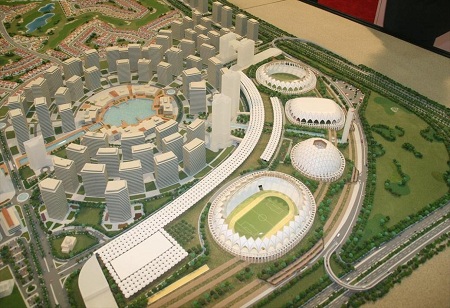According to a recent report by Grand View Research, Inc., the global architectural services market is expected to reach USD 391.7 billion by 2025. There are continuous upgrades in building design and architectural services across several sectors such as public, residential, and commercial owing to the rapid infrastructural development in various developed and developing nations around the world. One of the major factors driving the growth of this market includes the increase in investments in the construction sector. Other factors include the major technological innovations in the Architecture and urban designing landscape such as the use of advanced designing and planning software.
Urban design is an art and process of creating and re-shaping cities and towns. It involves various sub-processes such as the arrangement and design of buildings, public spaces, transport systems, etc., in order to give a new form and definition to the cities.
Through the art of urban design, urban areas are being made more attractive and functional, by blending the architecture, landscape architecture, and city planning. The urban design landscape has not only seen a development in the use of the design in the last decade but also design philosophy and design research. Also, technological advancements have helped in revamping urbanism. Not just that, these advancements have enabled individuals and businesses to access a wide range of services and tools, easily.
Urban design is vital to not only create sustainable developments and the conditions for a flourishing economic life, but they are also essential for the careful use of natural resources and social progress. When it comes to climate change, cities are in a distinctive position, from a design standpoint as they are considered to be one of the largest sources of emissions globally. According to a research report, 70 percent of cities around the globe are already dealing with the effects of climate change, and all these cities face some sort of risk. Most countries are coming up with new policies and taking measures to make meaningful changes in land use and zoning, transportation, green space, and energy policy.
Climate-sensitive approach to urban planning and development
One such framework that provides a road map for cities to promote a climate-sensitive approach to urban planning and development was recently launched by Union Housing and Urban Affairs minister Hardeep Singh Puri at a virtual event.
After the launch of ‘Climate Smart Cities Assessment Framework 2.0,’ Puri said, “It is estimated that climate change will impact the Indian GDP by 2-6 percent on an annual basis. This means that our future development goals and investments will also be severely affected if we do not address climate risks now.”
